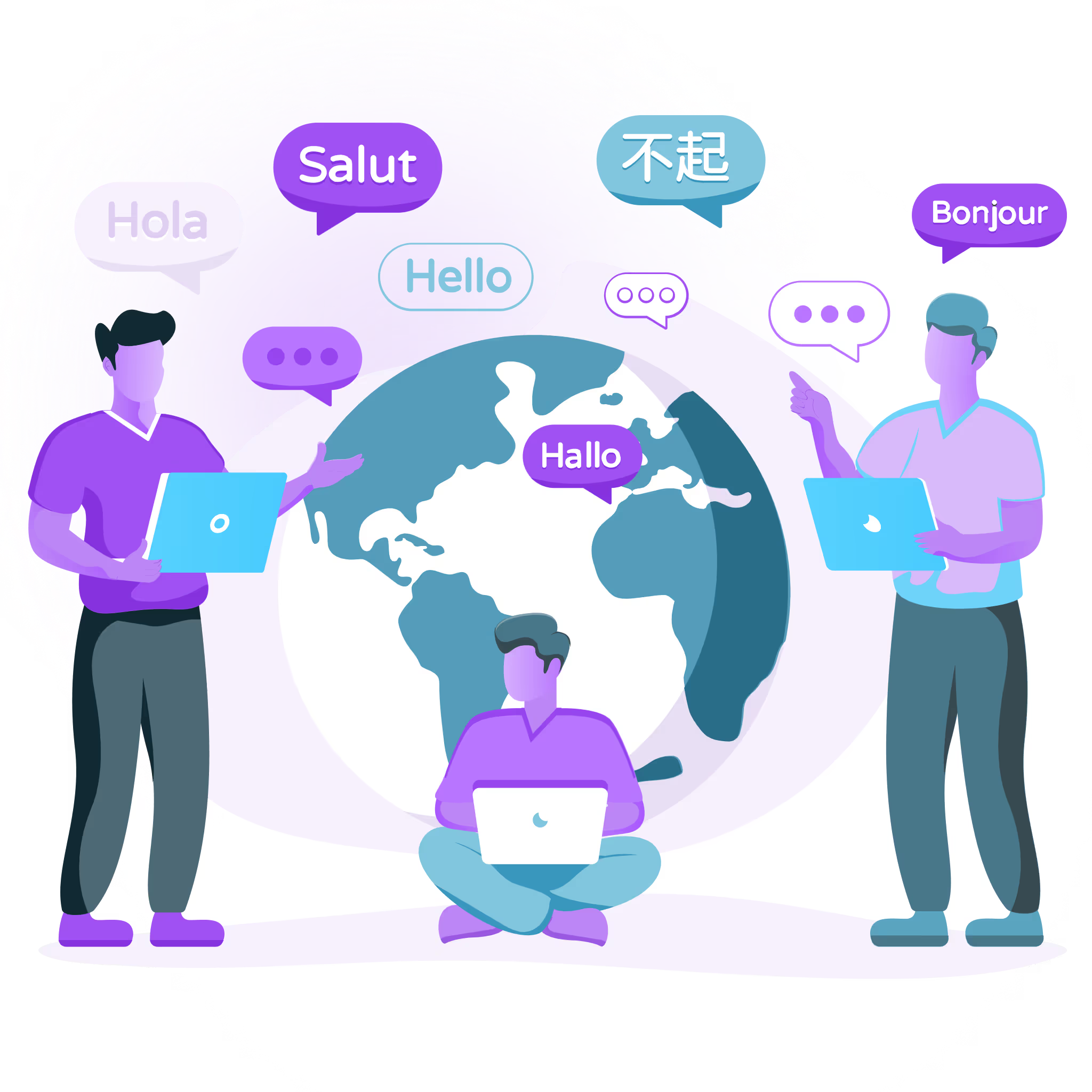Expanding your business into new countries takes more than translating your website. Translation helps, but it doesn’t guarantee success.
That’s where localization comes in. The meaning of localization is adapting your product or service for a specific market, making sure it feels native to people in a different culture.
In this guide, we’ll show how localization drives real results for e-commerce stores, web apps, and more.
The ROI Opportunity of Localization
Did you know that three out of four customers won’t stick around if your site isn’t available in their language? A multilingual website won’t close the sale on its own, but without it, you’re leaving revenue on the table.
That’s the heart of localization: it’s an investment and a growth driver. The key is showing that localized content outperforms English-only content. That’s where the ROI of localization comes in.
The good news? Localization almost always pays off. Once companies start localizing, they rarely stop—because it works. In a DeepL survey, 96% of B2B leaders reported positive ROI, and 65% saw returns of 3x or more.
How Different Businesses Approach Localization
Localization means customizing a product, app, or website for a different language and culture. It involves translation, adapting visuals, adding cultural references, and more.

Businesses localize differently depending on the type of product. Here are three common approaches for e-commerce, apps, and websites.
1. Website Localization
Only 20% of the world's population can read and speak English, so website translation is crucial.
People who can't read your content can't buy from you, so translated text is a necessity for reaching the other 80% of your potential customers.
Example: Multilingual Websites at IBM
Global companies like IBM understand the importance of localization and translation. Since the 1950s, IBM has led the industry in the development of AI translation technology. Today, it's no surprise that they invest a lot of time and energy in website localization for IBM.com, including support for dozens of different languages and local markets.
Along with translations, IBM employs extensive localization to deliver a tailored user experience for users in various regions. Each country's unique site is tailored to local customer preferences and cultural sensitivities. For example, social sharing buttons for sites like Facebook and Instagram are popular in the US, but less common in other regions, such as India. Therefore, IBM's India site utilizes LinkedIn buttons instead.

Pictured: IBM's Polish homepage. IBM is an industry leader in localization, with dozens of language options on its homepage, IBM.com.
IBM also recognizes that content maintenance is incredibly important. According to their documentation, "Initial translation is the easy part, managing translations is complicated." To solve this issue, IBM recommends using a script to help localization teams easily identify new content and manage translations. A reliable translation management system (TMS) supports companies like IBM as they maintain their localized content to seamlessly communicate with clients all over the world.
2. E-Commerce Localization
You don't have to be a tech giant like Amazon to benefit from e-commerce localization. E-commerce companies of all sizes can gain new customers and stay competitive when they thoughtfully tailor their content for new markets. According to research from Shopify, offering new languages in an online store leads to 20% higher customer satisfaction, on average.
Language localization ensures that every part of the shopping experience—descriptions, reviews, checkout, and support—feels native to the customer. When done well, it builds trust, removes friction, and makes buyers more likely to complete a purchase.
Learn more: Best Practices for E-commerce Localization
Amazon is the top online shopping platform in the world for a reason. They use eCommerce localization to reach target markets across the globe. E-commerce localization helps global companies like Amazon deliver a customized buying experience to people in dozens of different countries.
Example: Localizing Amazon.com for Chinese Shoppers
When you compare Amazon's American and Chinese landing pages, the sites are completely different for each locale. And it's not only the languages. Amazon adapted each element of its China homepage (http://amazon.cn) to suit the local culture, from currencies to unique regional preferences.
In terms of preferences, Amazon knows that its Chinese consumers care less about delivery speed than American consumers and instead prefer to know exactly when their packages will arrive. So the Chinese Amazon user interface was designed with less emphasis on delivery speed and more emphasis on a specific delivery date and time.
Amazon. cn (China):

Amazon's China site is localized with language, UX design, and country-specific deals.
Amazon.com (USA):

3. App Localization
Nowadays, consumers have billions of mobile and web apps to choose from. And globalization has changed the marketplace. Studies show that people are eager for localized apps in emerging markets like Southeast Asia and Latin America.
Whether your business is enterprise accounting software or a mobile gaming app, localization can help you grow your audience and revenue in different countries. For web apps or mobile apps, localization elevates your brand above the competition.
App localization can dramatically expand your reach and improve conversion in non-English speaking markets. Many Fortune 500 companies found that their investments in translation and localization paid off with increased ROI.
Example: The Industry Standard of App Localization with Airbnb
Airbnb is a perfect example of app localization.
Airbnb localizes both its web app (for desktop users) and mobile app (for iOS and Android). Currently, Airbnb supports 220 locations and over 60 languages. Depending on the user's location, Airbnb's user interface, time and date formats, forms, phone numbers, and payment methods are all tailored for a local context.
Airbnb’s core markets are mostly English-speaking, such as Canada and Australia, but also include parts of Europe, with a strong presence in France, for example. CFO Ellie Mertz has identified South America and Europe as key geographic growth areas in 2025. The company plans to continue investing in localization efforts to propel its growth.

As you can see, smart app design with localization at the forefront helps customers have a fantastic experience with your brand—no matter where they are in the world.
Choosing a Partner for Your Localization Projects
If you're looking for the right partner in the internationalization and localization process, consider Localize.
Localize is a translation management system that simplifies your workflow and localization process with powerful features like glossaries, style guides, automatic content detection, and more. We've helped hundreds of companies localize their websites, software, and mobile apps for a global market.
Contact the team at Localize to start building a successful localization strategy today.




.png)


.png)



